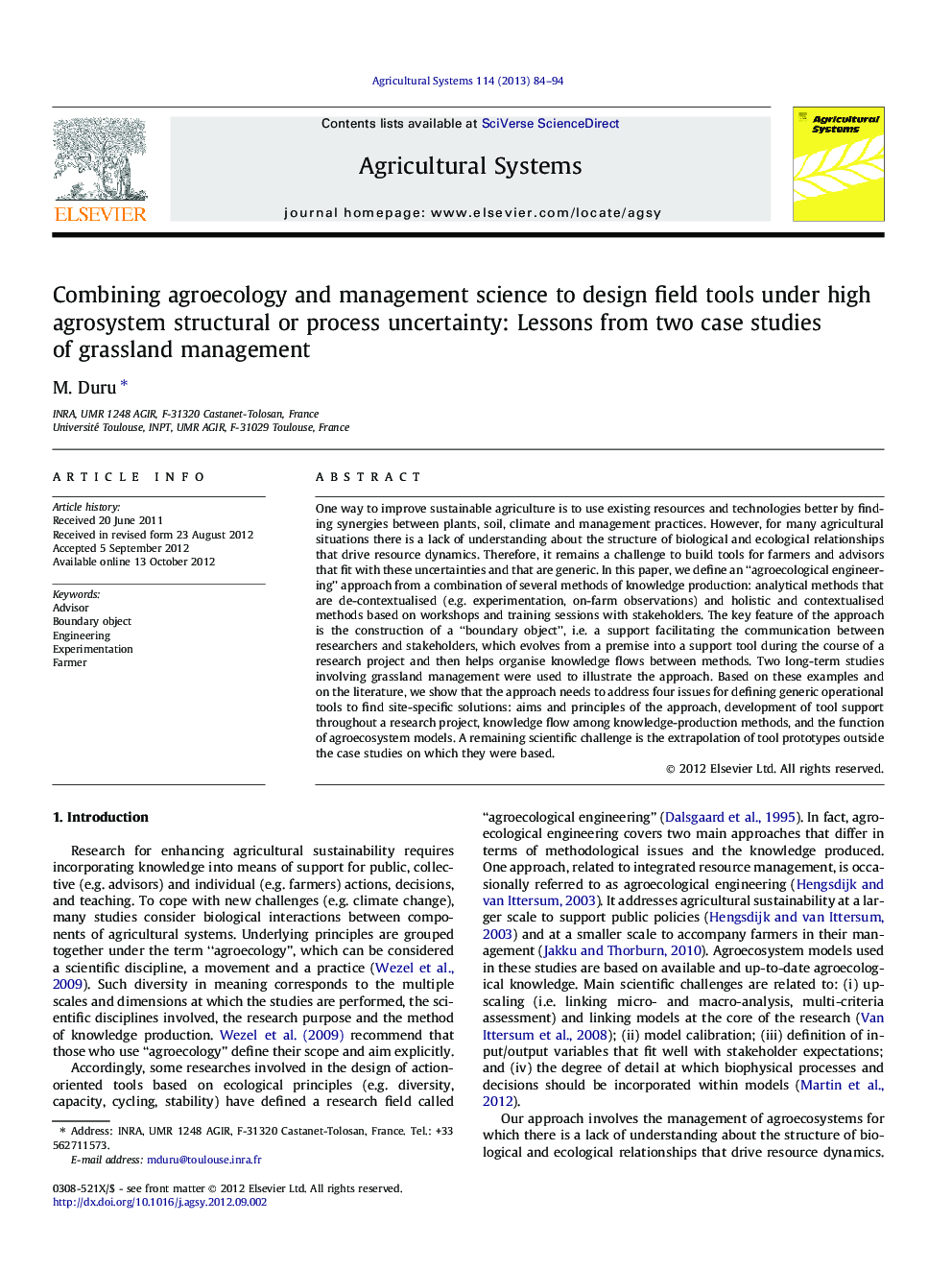| Article ID | Journal | Published Year | Pages | File Type |
|---|---|---|---|---|
| 4491413 | Agricultural Systems | 2013 | 11 Pages |
One way to improve sustainable agriculture is to use existing resources and technologies better by finding synergies between plants, soil, climate and management practices. However, for many agricultural situations there is a lack of understanding about the structure of biological and ecological relationships that drive resource dynamics. Therefore, it remains a challenge to build tools for farmers and advisors that fit with these uncertainties and that are generic. In this paper, we define an “agroecological engineering” approach from a combination of several methods of knowledge production: analytical methods that are de-contextualised (e.g. experimentation, on-farm observations) and holistic and contextualised methods based on workshops and training sessions with stakeholders. The key feature of the approach is the construction of a “boundary object”, i.e. a support facilitating the communication between researchers and stakeholders, which evolves from a premise into a support tool during the course of a research project and then helps organise knowledge flows between methods. Two long-term studies involving grassland management were used to illustrate the approach. Based on these examples and on the literature, we show that the approach needs to address four issues for defining generic operational tools to find site-specific solutions: aims and principles of the approach, development of tool support throughout a research project, knowledge flow among knowledge-production methods, and the function of agroecosystem models. A remaining scientific challenge is the extrapolation of tool prototypes outside the case studies on which they were based.
► We examined how agronomic knowledge was elaborated to create two support tools. ► Tool prototypes can mediate knowledge between researchers and stakeholders. ► Experimentation and modelling ensure that the tools are rooted in sound science. ► Working sessions with stakeholders allow new and relevant hypotheses to be formulated.
